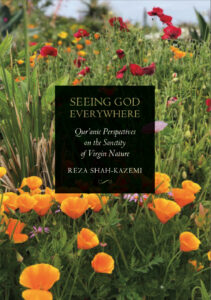Seeing God Everywhere
Qur’anic Perspectives on the Sanctity of Virgin Nature
Reza Shah-Kazemi
From the Secular to the Sacred
By now, the difference between an Islamic conception of environmental ethics and a secular one should have become clear. Both may, on the surface, appear to have the same goals, but in truth the Islamic perspective integrates an environmental ethic within a much more universal framework of reality, not only addressing the surface manifestations of the environmental crisis, but also engaging its deeper roots in the fundamental spiritual and psychological tendencies which gave rise to the crisis in the first place. We receive many laudable recommendations and proposals by secular environmentalists, urging us to change our actions and even our habits; and such recommendations are in accord with the Qur’anic emphasis on conservation, on the necessity of frugality, on the avoidance of extravagance, of waste, and so on.
However, a secular set of recommendations regarding environmental ethics is flat and horizontal, lacking the dimensions of height and depth which are bestowed by a sacred view of the environment, one in which wholesome attitudes towards the natural world are rooted in the principle of Tawĥīd, which engages all levels of the ‘environment’, from the material to the moral to the spiritual and the Divine. Thus, a circumspect attitude towards creation goes hand in hand with moral responsibility to the Creator and spiritual attunement to the ultimate nature of Reality. Then our environmental ethics will be inspired by the sanctifying beauty of Mother Nature, the aweinspiring majesty of her Creator, and the transforming alchemy of Divine Grace.


